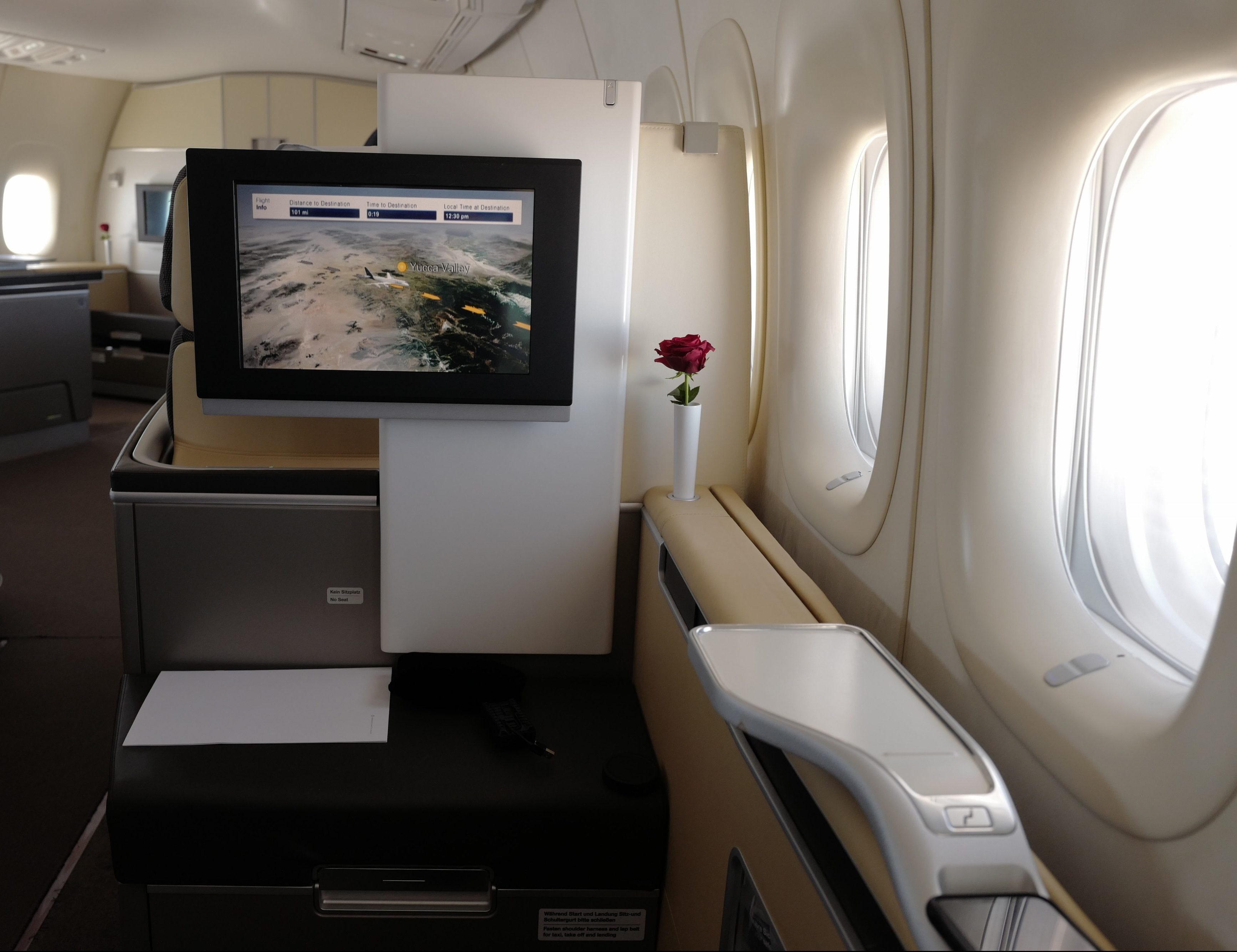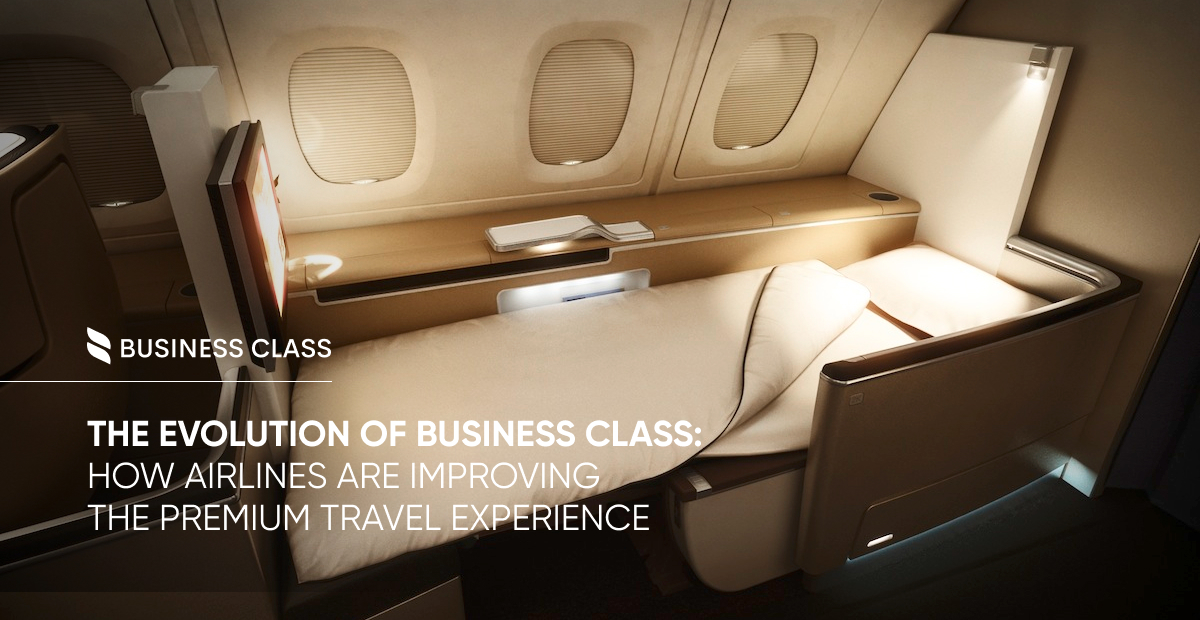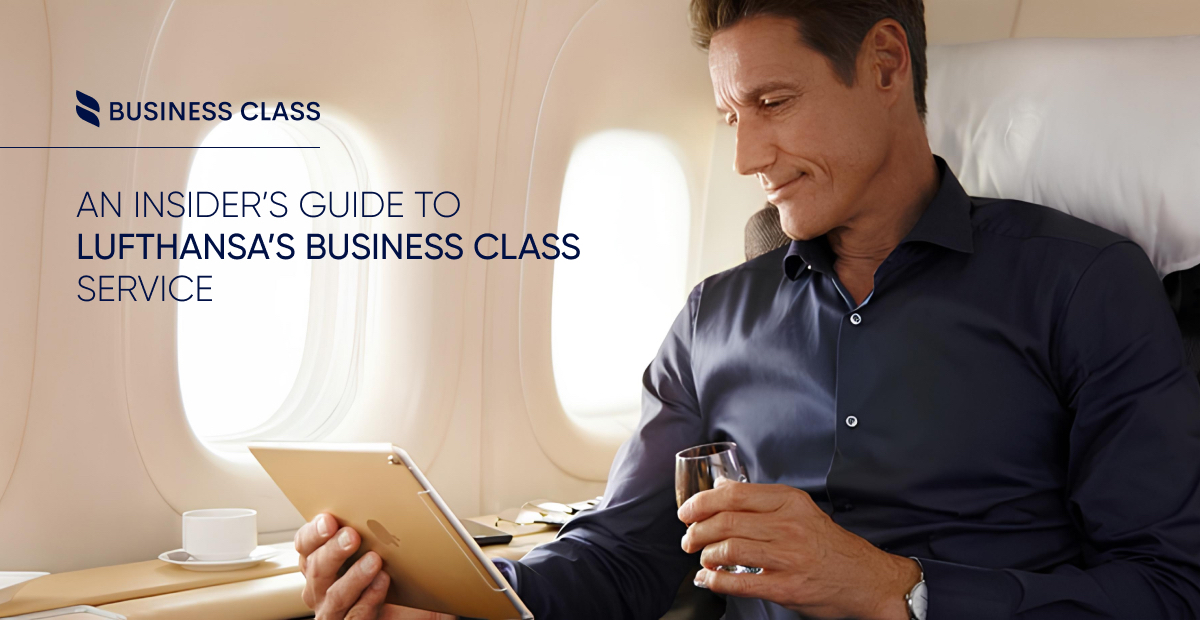First and business class seats are your two options for a premium flight experience. Of course, each is a significant step above coach or economy class; but first and business class are also priced significantly higher than economy. Price differences between first and business can vary according to airline and route, but often a first class traveler can expect to pay 60-200% more than a business class traveler. For accurate price comparisons, I recommend contacting Business-Class.com; their agents can secure some of the cheapest ticket prices available and outline all of your pricing and flight options.
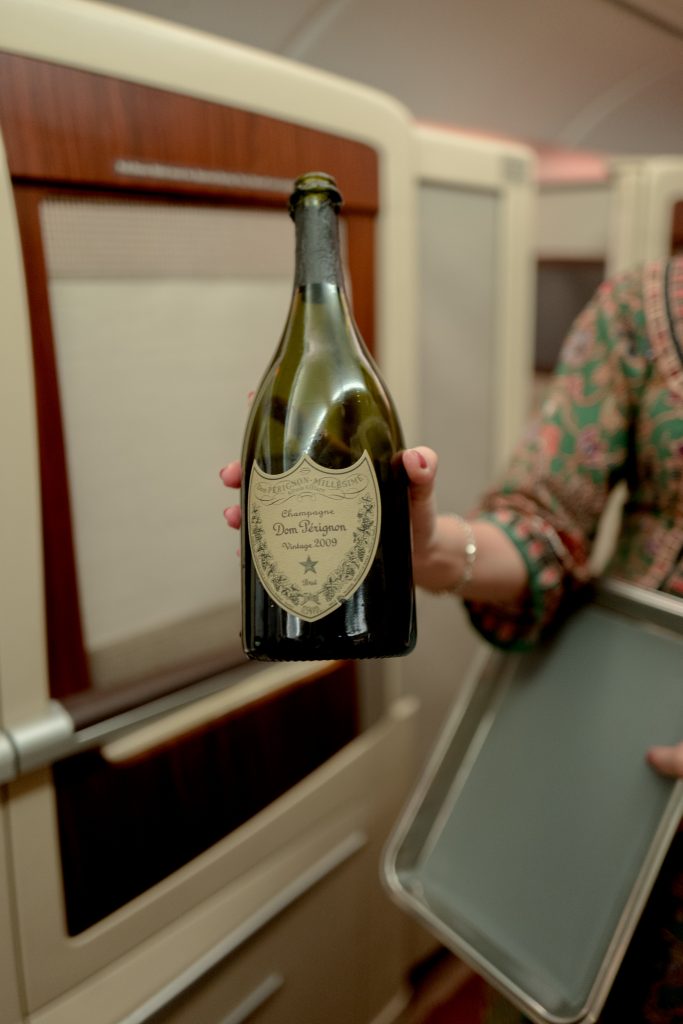
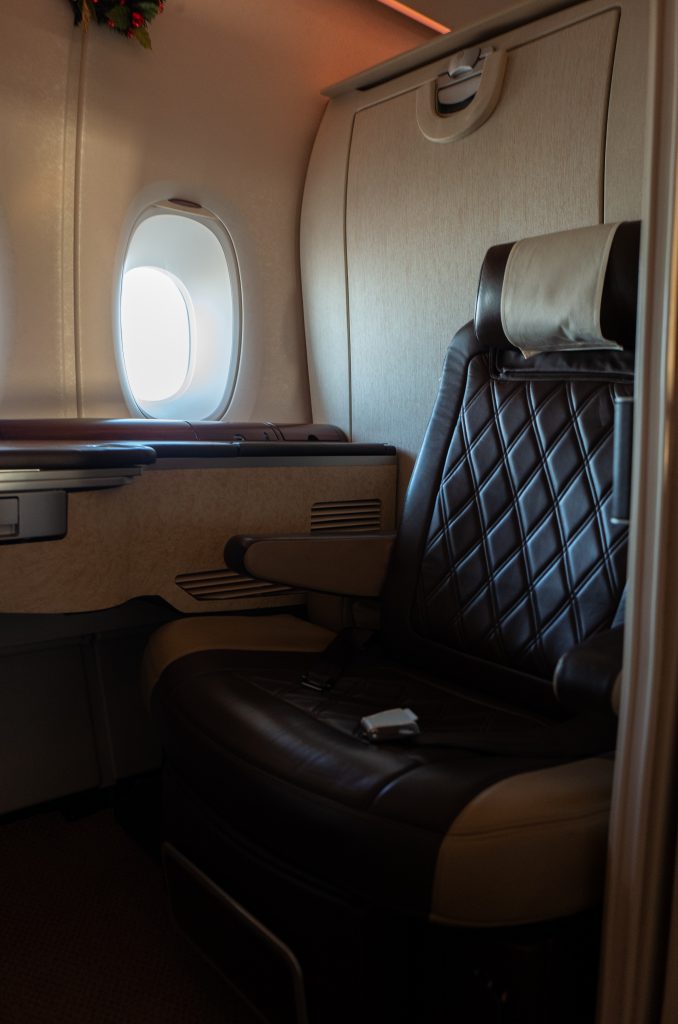

Price is not the only factor that varies by airline and route; the airport lounges, service, food, cabin design, space, and seat can also differ. Airlines constantly upgrade their offerings to spur more travelers into both first and business class. On Singapore Airlines, for example, business class is spacious and comfortable with delicious, restaurant-level meals and lay-flat seats. Singapore Airlines first class suites, however, blow their business class offerings away: expect nothing sort of your own private apartment in first class – with double beds and Michelin-rated meals (Dom Perignon and caviar are the starters) and near-absolute privacy.
The following is meant to be a general guide to outline the differences between first and business class, rather than a thorough examination of each and every airline’s offerings. Also, we’ll stick to international travel. Let’s start!
Before Boarding
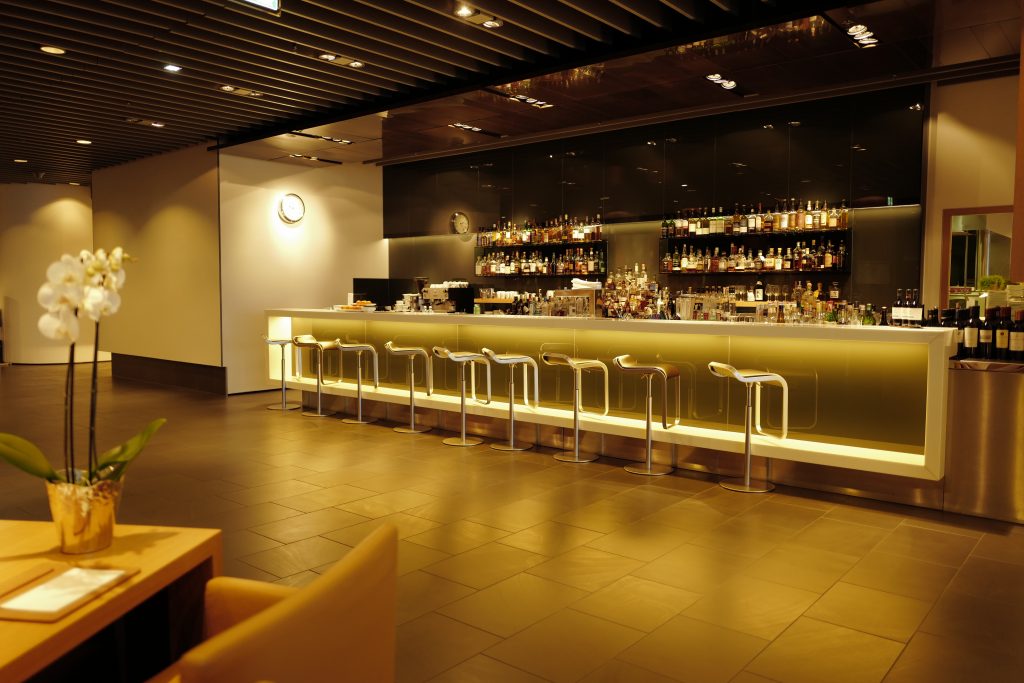
Looking to reduce travel friction? Start in the lounge. First class lounges offer great food and a comfortable environment. This is a place designed for reading, finishing up a report in quiet, or just relaxing. Perhaps one of the best features of the first class lounge is the boarding. Often airlines provide first class travelers with a separate entrance and even boarding route: a shout-out here to Lufthansa in Frankfurt, which offers Porsche rides to their first class passengers, thereby allowing them to skip the main terminal for their own terminal. By times, airlines will share some of the first lounge features with business class travelers, but first class always gets priority. Asiana Airlines in Incheon (and certainly in other areas and airlines), for example, also has a separate check-in area for both first and business class travelers – not just a separate line.
Wait times
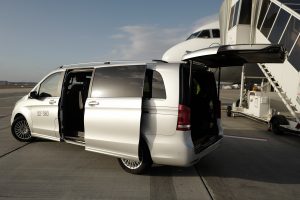
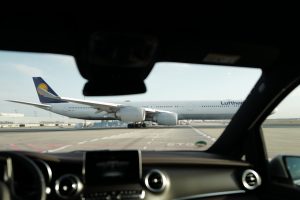
First class always has priority. Period. Those in business class will wait until first has boarded.
Seat, Space and Privacy
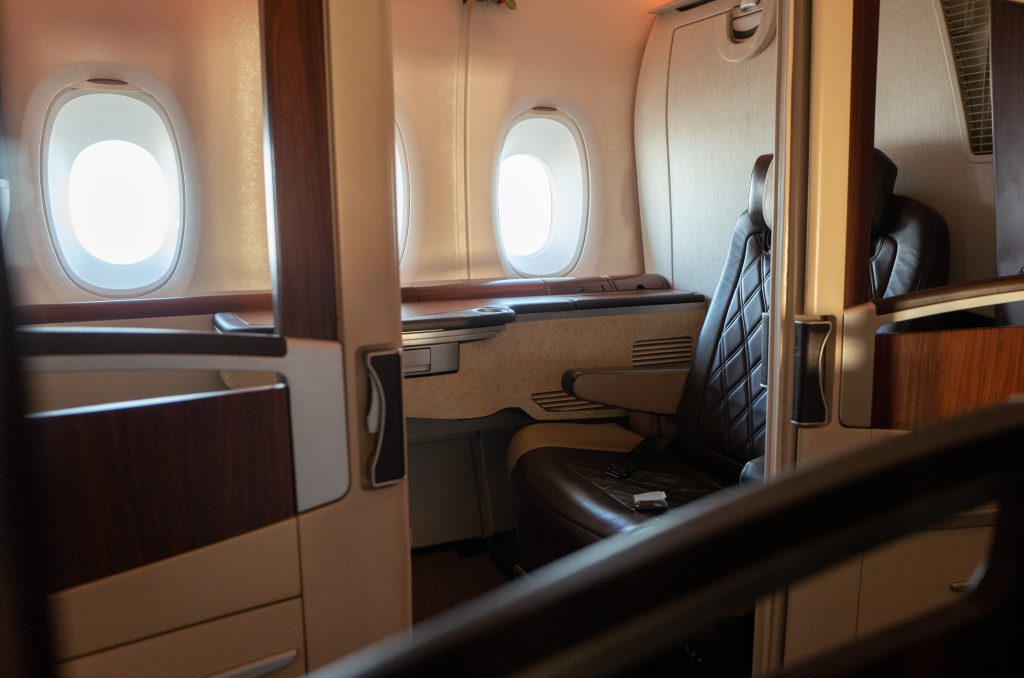
Some airlines contain first class seats that are 31-36” (or 91 cm) wide (!) whereas most business class seats hover in the low- to mid-20” wide. First class has fewer seats in its cabin than business class, which means that first class travelers always have more legroom and general space. Also, because of the reduced number of seats, first class configuration allows for greater privacy.
Service
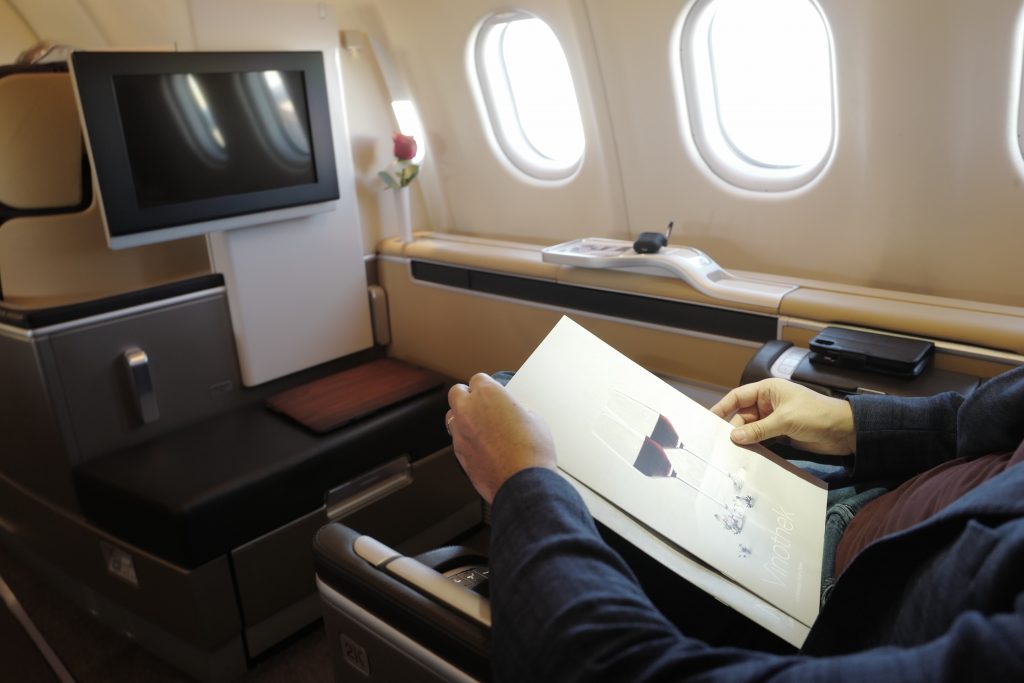
First class has the most favorable attendant to passenger ratio. Although service in business class is great, service in first class is the best. Attendants in first class can afford to be (and are encouraged to be) more attentive to individuals. They simply have more time.
Amenities
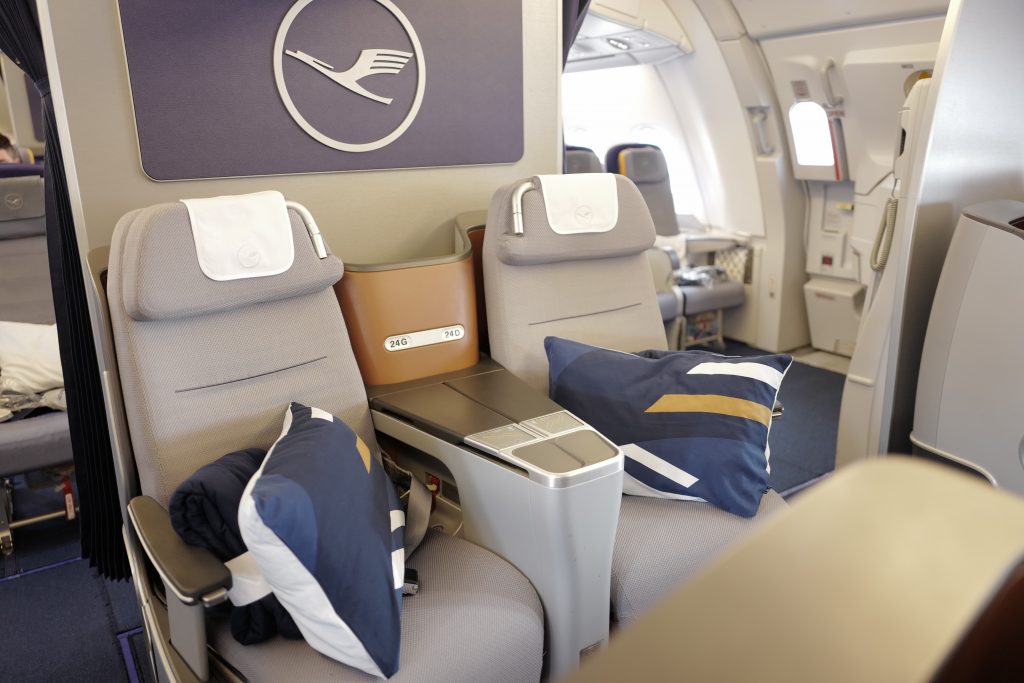
Business class always has a decent kit to offer its passengers – noise-cancelling headphones, skin cream, slippers, blinders, etc. Well, keep adding the items for first class. In fact, upgrade everything and include more – like pajamas, cologne/perfume, then pass the time with a shower! Not all, but many first class services include in-flight showers.
Business class is perfectly comfortable with incredible service and an array of offerings, but first class tops it in every category. Replace “perfectly comfortable” with “luxurious” and you have the first class flight experience. If you can shoulder the extra expense, first class is highly recommended.

